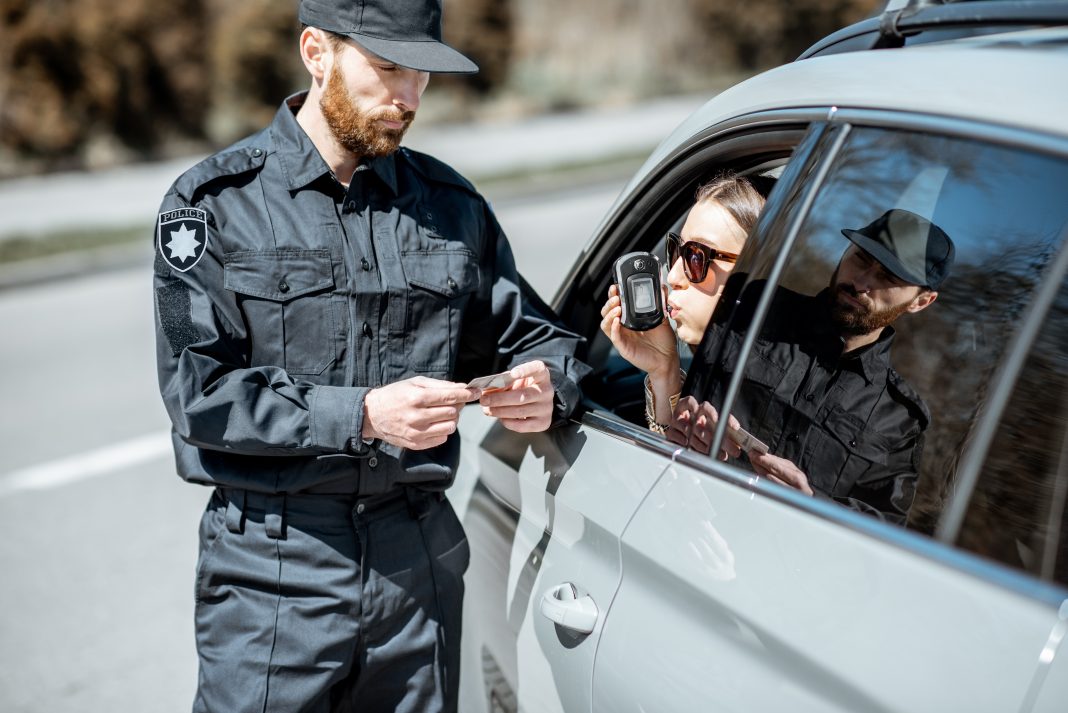Table of Contents - Jump Ahead:
It is normal for a person to feel anxious or intimidated when being pulled over by law enforcement; this is especially true when it involves suspicion of driving under the influence (DUI). No one wants to participate in any activity that could potentially prove incriminating, including taking a breath test. We all have legal and constitutional rights, but should you submit to a breathalyzer test in California?
California’s Implied Consent Law
The Implied Consent law applies to any person with a driver’s license in the state. Upon getting licensed, a motorist has given consent to breath testing when pulled over on suspicion of DUI whether they realize it or not. However, it is important to note that consent is only given after someone is lawfully arrested, not prior to arrest. A breathalyzer test in California that is administered roadside is known as a preliminary alcohol screening (PAS) test. According to California Vehicle Code 23612 an individual who operates a motor vehicle is considered to have granted consent for chemical testing of their breath or blood for the intention of establishing blood alcohol content if that individual is lawfully arrested for the alleged commission of an offense that violates Section 23140, 23152, or 23153.
- Vehicle Code section 23140 – It is illegal for an individual younger than 21 years of age to operate a vehicle when blood alcohol content is 0.05 percent or greater
- Vehicle Code section 23152 – It is illegal for an individual (regardless of age) to operate a vehicle with a blood alcohol content of 0.08 percent or greater
- Vehicle Code section 23153 – It is illegal for an individual to operate a vehicle and simultaneously commit any act that is forbidden by law, or abandon any duty enforced by law in operating a vehicle, which act or neglect relatively results in bodily injury to any individual who is not the driver
Law enforcement officers use breath tests and other roadside tests to determine whether a person is under the influence of alcohol; their opinions are not always substantiated by evidence.
Here are things NOT to do after being arrested for DUI.
When Motorists Should or Should Not Consent to Breathalyzer Tests
In most cases a motorist should not submit to a breathalyzer test in California when they have not been arrested. Refusing the PAS test can be beneficial, particularly in cases where the motorist has had a drink or two. Law enforcement officers request that motorists take the breath test in order to secure probable cause for an arrest.
The only scenario in which a person should submit to a breath test prior to arrest is when that person knows without a doubt they will not blow over the 0.08% legal limit or is on probation for a prior DUI offense. The PAS (preliminary alcohol screening test), which is done roadside by law enforcement, is voluntary and a person will not suffer worse consequences if you refuse the PAS prior to an arrest.
That said, it is not a good idea to refuse a breathalyzer test following an arrest. The Implied Consent law makes it unlawful for an individual to refuse a breath test following a lawful arrest. There are legal consequences a person may face when refusing a breath test after being placed under arrest. These include:
- Penalties if convicted of the primary DUI offense
- Driver’s license may be suspended or revoked
- Additional six months of DUI school for first-time offenders
It is important to note that if a person is arrested and refuses to participate in a chemical or breath test done at the police station, they will be charged with a refusal and receive a mandatory one-year suspension of their driver’s license and possibly increased jail time. Those with questions regarding breath tests and other elements of a DUI arrest can feel free to contact SLM Law.
Potential Defenses to Breathalyzer Test Refusal
When an individual refuses a breath test following an arrest for driving under the influence, there are several defenses that may prove effective depending on the circumstances of the case. These include but are not limited to:
- Lack of probable cause in pulling the motorist over
- The vehicle was not being driven by the defendant at the time
- No evidence to suggest a rational belief the defendant was operating under the influence
- Proving the arrest was unlawful
- Law enforcement officer failed to clearly explain the consequences of refusal to take a breath test
- At the time of refusal, the defendant was suffering injuries that left them disabled
All defendants in any criminal case whether involving DUI or not are presumed innocent until proven guilty.
Consider Contacting SLM Law, APC Today
Anyone who has been pulled over on suspicion of DUI knows how stressful it can be. Should you submit to a breathalyzer test in California? If it is requested before a person is arrested, the answer is NO in most cases. Those with questions regarding DUI and breath tests may want to consider contacting a DUI lawyer at SLM Law, APC at (310) 443-4119.



































